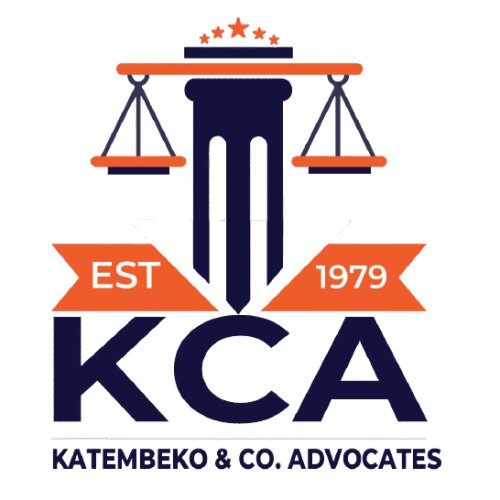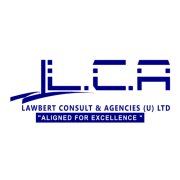Best Water Law Lawyers in Uganda
Share your needs with us, get contacted by law firms.
Free. Takes 2 min.
Or refine your search by selecting a city:
List of the best lawyers in Uganda
About Water Law in Uganda
Water Law in Uganda is primarily governed by the Water Act Cap 152, together with various regulations, policies, and constitutional provisions. The central goal of Water Law is to ensure sustainable use, management, and conservation of Uganda's water resources for present and future generations. The law addresses issues of water access, rights, licensing, pollution control, conservation, as well as the development and management of water supply and sanitation infrastructure. It also outlines the roles and responsibilities of government agencies, individuals, community groups, and private sector players involved in water management.
Why You May Need a Lawyer
Legal assistance in Water Law can be necessary in several scenarios. Here are some common situations where consulting a lawyer may be helpful:
- If you require a permit or license to use water for commercial or industrial purposes
- If you are involved in a dispute over water rights or access to water resources
- If you are facing penalties or enforcement action due to alleged water pollution or illegal abstraction
- If your land or livelihood is affected by government water projects or infrastructure development
- If you want to understand your rights and obligations regarding water use on your property
- If you are an investor interested in water supply, irrigation schemes, or related industries
- If you are representing a community seeking to protect or restore traditional water sources
- If you intend to appeal a decision made by a governmental water authority
Local Laws Overview
Uganda's Water Law system is built on a few key elements:
- The Water Act Cap 152 - This is the primary statute governing water use, management, development, and regulation. It empowers the Minister responsible for water to declare water reserves, manage water rights, and oversee regulations.
- Licensing and Permitting - Large scale use, abstraction, or pollution of water usually requires a license from the Directorate of Water Resources Management (DWRM).
- Customary Rights - The Act recognizes customary uses of water, especially for domestic and small-scale farming purposes, but these must not interfere with other lawful users.
- Protection of Water Resources - The law forbids the pollution of water bodies and groundwater and encourages conservation measures, with penalties for violations.
- Public Participation - The Act encourages public and stakeholder participation in water resource management, including the formation of Water User Associations.
- The National Environment Act - This law also plays a role, particularly regarding pollution control and environmental impact assessments for water-related projects.
- Regulations - Several regulations provide detailed guidance on water permits, wastewater management, dam safety, water supply, and sanitation.
Frequently Asked Questions
What authority manages water resources in Uganda?
The Directorate of Water Resources Management, under the Ministry of Water and Environment, is responsible for licensing, regulation, policy planning, and oversight of water resources in Uganda.
Do I need permission to use water from a river for irrigation?
If you plan to use water from a river or any other source for large-scale irrigation or commercial purposes, you are required to obtain a water use permit from the relevant authority. Small-scale irrigation for domestic use may not require formal permission.
What should I do if a neighbor blocks my access to a shared water source?
Start by engaging in mediation or dialogue. If unresolved, you can approach the local authorities or seek legal recourse for settlement based on customary or statutory rights.
Is it legal to dig a borehole on my property?
Drilling a borehole generally requires a permit to ensure the activity does not negatively impact the environment or existing water sources. Check with the Directorate of Water Resources Management for guidance.
How are water pollution offenses handled?
Causing water pollution is a punishable offense under Ugandan law. Offenders may face fines, orders to restore affected areas, or even prosecution, depending on the extent and impact of pollution.
Are there regulations around rainwater harvesting?
Rainwater harvesting for domestic use is generally encouraged and not heavily regulated, but the system should be constructed and managed hygienically to avoid health hazards.
What community rights exist for managing water resources?
Communities are recognized through Water User Associations and other groups and are given legal backing to manage local water sources, especially for domestic and livestock use.
Can I appeal a decision denying me a water permit?
Yes, there is a clear process for appealing such administrative decisions. Legal advice can help you prepare documentation and navigate the appeals process.
What laws apply to water supply companies?
Water supply companies in Uganda are regulated by the Ministry of Water and Environment, the National Water and Sewerage Corporation Act, and must adhere to regulations regarding licensing, quality standards, tariffs, and consumer protection.
How does Water Law address climate change impacts?
Water Law and policy frameworks in Uganda increasingly recognize the need for sustainable water management, conservation, and resilience to climate change, including drought and flood management programs.
Additional Resources
If you are seeking information or assistance on Water Law in Uganda, the following resources can be particularly valuable:
- Ministry of Water and Environment - For policy, licensing, and regulatory information
- Directorate of Water Resources Management - For permits, water use, and technical advice
- National Water and Sewerage Corporation - For water supply and sewerage services
- Uganda Law Society - For finding legal professionals specializing in Water Law
- Environmental NGOs (such as the Uganda Water and Sanitation NGO Network) - For community support and advocacy
- Local district water offices and community development departments
Next Steps
If you believe you need legal advice or assistance regarding Water Law issues in Uganda, consider the following steps:
- Identify the specific nature of your legal concern - whether it is water access, a dispute, licensing, pollution, or another issue
- Gather any relevant documents, permits, correspondence, or notifications relating to your case
- Consult a qualified lawyer or legal practitioner who has experience in Water Law matters
- Reach out to the Ministry of Water and Environment or your district water office for technical guidance
- Prepare clear questions and objectives for your legal consultation to make the most efficient use of your meeting
- If facing urgent action, take immediate steps to stop any unlawful activity and document the situation for legal proceedings
Early involvement of a legal professional can help protect your rights, avoid costly mistakes, and lead to a faster and fairer resolution of disputes or permit processes.
Lawzana helps you find the best lawyers and law firms in Uganda through a curated and pre-screened list of qualified legal professionals. Our platform offers rankings and detailed profiles of attorneys and law firms, allowing you to compare based on practice areas, including Water Law, experience, and client feedback.
Each profile includes a description of the firm's areas of practice, client reviews, team members and partners, year of establishment, spoken languages, office locations, contact information, social media presence, and any published articles or resources. Most firms on our platform speak English and are experienced in both local and international legal matters.
Get a quote from top-rated law firms in Uganda — quickly, securely, and without unnecessary hassle.
Disclaimer:
The information provided on this page is for general informational purposes only and does not constitute legal advice. While we strive to ensure the accuracy and relevance of the content, legal information may change over time, and interpretations of the law can vary. You should always consult with a qualified legal professional for advice specific to your situation.
We disclaim all liability for actions taken or not taken based on the content of this page. If you believe any information is incorrect or outdated, please contact us, and we will review and update it where appropriate.
Browse water law law firms by city in Uganda
Refine your search by selecting a city.
















